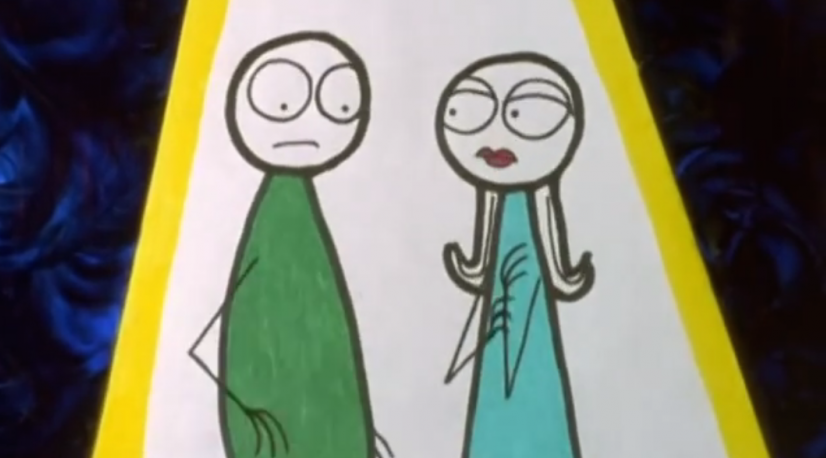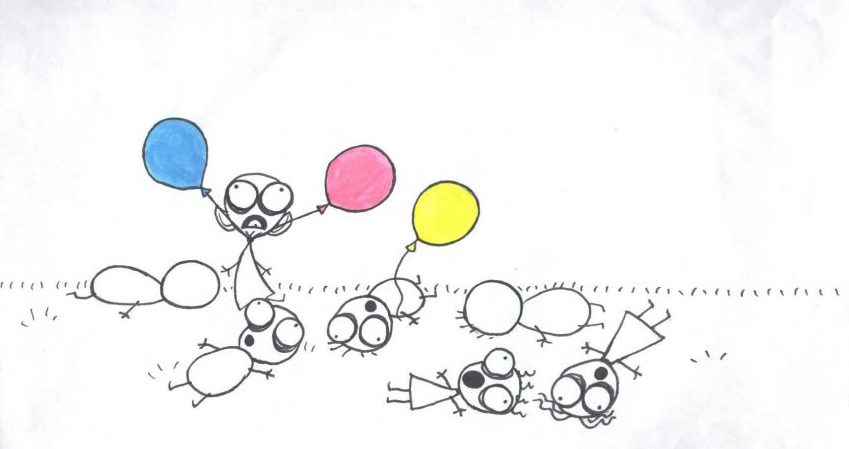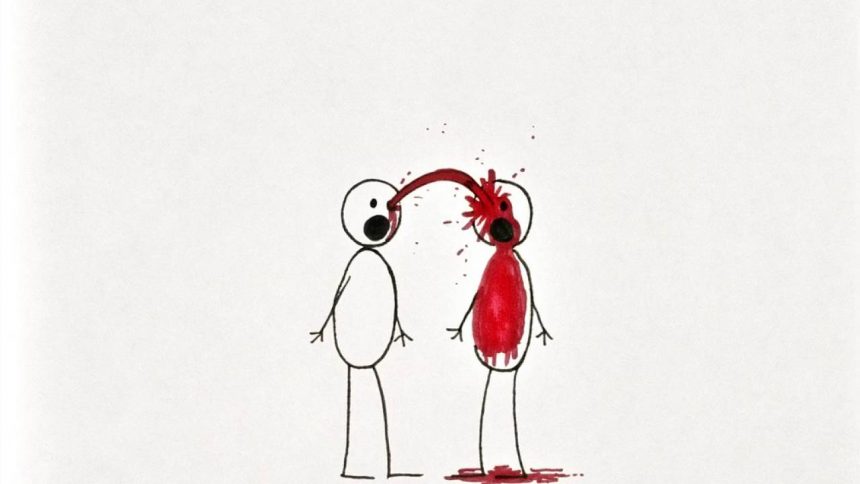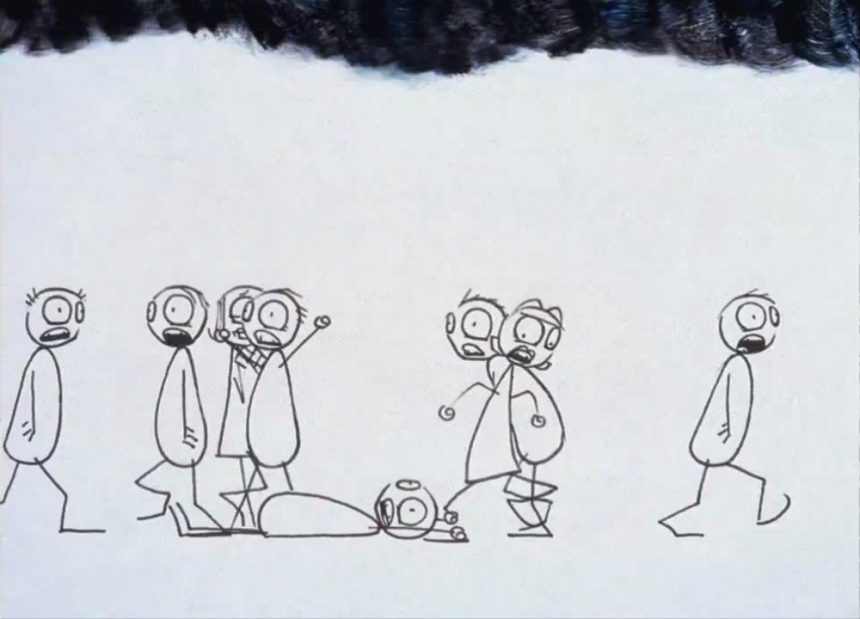Take in MMoCA’s strongest program in years with your fellow mouth-breathing noise bags
Editor’s Note: An earlier version of this story named Don Hertzfeldt’s daughter as the voice behind Emily
If you were among those fortunate to catch World of Tomorrow at Hilldale this past Jan (or during its brief run on Netflix Instant) you already know Don Hertzfeldt can be nothing short of brilliant. In his pint-sized solipsistic odyssey, Emily (voiced by Hertzfeldt’s niece) unlocks a communique through her button-mashing, summoning a clone of her future self. Emily spends much of the film listening to er, Emily 227 years into the future expound on the troubling, complex means humanity has chosen to cheat death. It’s a bit heady, but World of Tomorrow isn’t without levity, told through Hertzfeldt’s simple trademark style and with the added bonus of Emily’s giggles and non sequiturs in the face of crippling mortality.
To kick off “Rooftop Cinema” this Fri, the Madison Museum of Contemporary Art is presenting four of Hertzfeldt’s short films and while World of Tomorrow isn’t among them, MMoCA’s survey of the animator’s early work reveals just how consistent he’s been for almost two decades — and how its four selections inform his latest creation in their own way.
Lily and Jim is the program’s earliest entry, handmade from over 10,000 frames during Hertzfeldt’s college days at UC-Santa Barbara. Its characters switch between reflections on a blind date and the present, where they both present their feelings on how the evening went to the audience. Forced dinner conversation swerves into talk of “pretty neat” Holocaust films and parental incineration, all of which is dominated by thought balloons revealing their true, sexual fixations. It’s tempting to scream “Just do it already!” as the two over-analyze misunderstandings and a collective lack of forthrightness, and the profound sense of missed connections on display also sheds light on the emotional bareness in World of Tomorrow, where a universe populated by copies can feel as lonely as any alternative.

Billy’s Balloon shares a more obvious connection, taking its toddler to dark and unexpected places. As with Emily’s button-mashing, this begins innocently enough. Billy yanks on his bright red balloon until the tables flip. The balloon becomes violent and begins “playing” with Billy, wrapping its tethered string around his neck and dragging him skyward before dropping him on the ground. The silent nature of the violence — which is repeated and then multiplied — makes the dadaist scenario ring disturbingly prescient, and partial credit goes just to the uncompromising sound design against such minimalist images.

Undoubtedly his most popular work, Rejected is the one Hertzfeldt short you’ve seen even if you haven’t. 2000’s rapid-fire experiment dominated the days of early streaming video and humor sites and has gone on to influence the marketing campaigns of Red Bull and Pop-Tarts. Its central hook is the nonsensical humor of cartoon submissions “dismissed” by the Family Learning Channel. Interspersed with comments from an exaggerated Hertzfeldt proxy, Rejected flips from a giant talking banana to offending sizes of silverware to a spontaneous fountain of blood, the last of which Hertzfeldt alleges caused a drunk audience member to vomit all over himself from laughing so hard. The random lunacy takes a turn for the self-aware when each abandoned idea gets swallowed in the collapse of the entire collection’s structure, and characters pound in vain against the fourth wall. Eventually, Hertzfeldt’s creative state gives way to a vision of hundreds of thousands of years into the future, taking its eschatological depths to a universe adjacent to that of World of Tomorrow.

As the program’s final selection, The Meaning of Life most closely resembles its director’s recent work. Set to the sounds of an orchestra warming up, its introduction depicts a falling body as it slowly withers away before a mass of humans audibly indulge in their thoughts and negative energy. Soon, those humans change to creatures and while their designs pre-date Spore by at least three years, the gibberish they mumble is in many ways no different than our own self interests. Its scope expands into fluid planetary ballets, set to orchestral hits from the likes of Tchaikovsky, spiraling further away from the planet and its grumbling nonsense until it reaches it final destination: triviality. Doubling as the aesthetic tissue that connects World of Tomorrow‘s colorful pallet with Hertzfeldt’s more budget-savvy pieces, The Meaning of Life also shows an animator willing to explore his visual toolbox, moving to watercolor-inspired background designs and otherwordly gradients for a film that would feel even more profound if it weren’t so clearly over itself.
Hertzfeldt’s thematic through lines reveal a knack for delivering disaffected ideas with an almost cuddly simplicity, a talent that remains true with his newest works. You could get smacked in the head with a teddy bear this Fri. Or you know, check out Rooftop Cinema with your fellow mouth-breathing noise bags.
- The new season of Rooftop Cinema begins with “The Early Films of Don Hertzfeldt” on Fri, Jun 3 at 8:30p. Admission is $7 or FREE to museum members.

